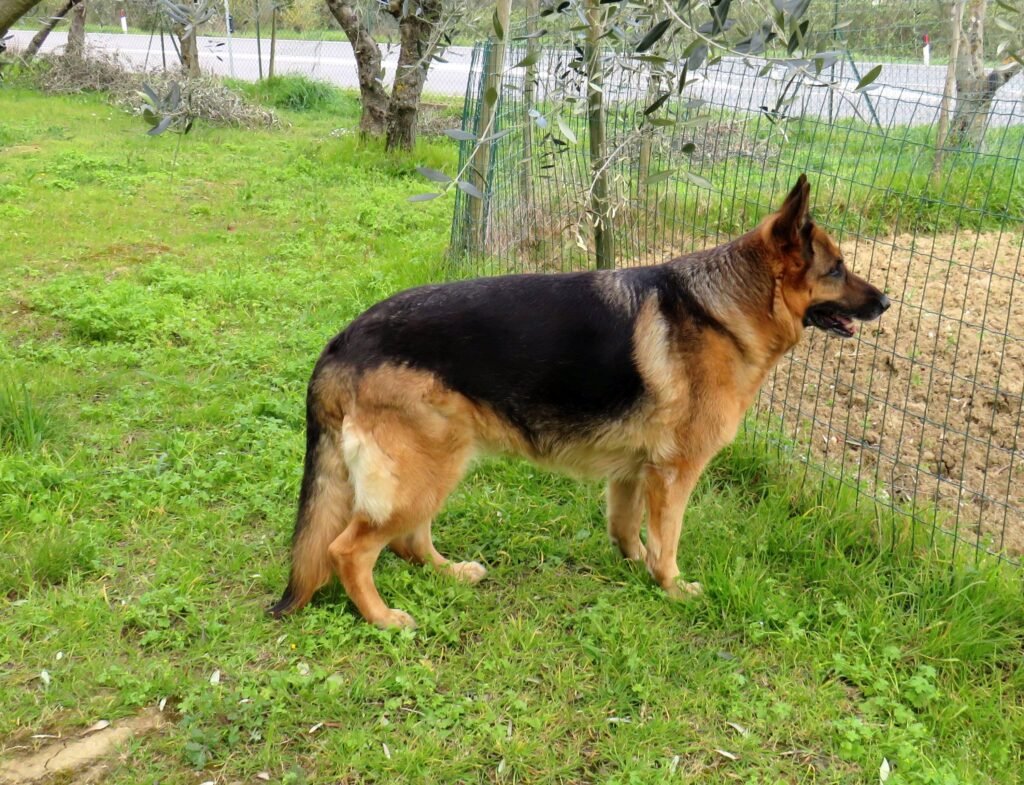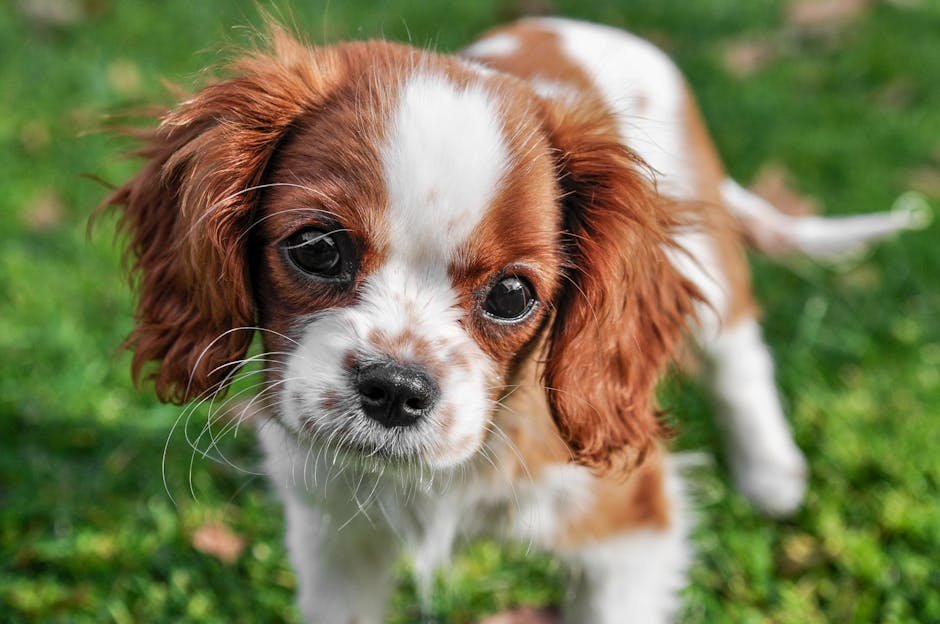Dogs, much like humans, can experience anxiety. It can manifest in various ways and impact their overall well-being. Understanding which breeds are more prone to anxiety can help dog owners provide the care and support their furry friends need. If you’re a dog lover, you may find this information both insightful and beneficial. In this article, we’ll explore ten dog breeds that often experience anxiety and offer some practical advice on how to help them.
Labrador Retriever: The Gentle Giant

Labrador Retrievers are known for their friendly and laid-back nature. However, they can be prone to separation anxiety. These dogs form strong bonds with their owners and can become distressed when left alone for extended periods. Signs of anxiety in Labradors may include excessive barking, destructive behavior, or even depression. To help a Labrador with anxiety, it’s essential to gradually acclimate them to being alone. Start by leaving them for short periods and gradually increase the time. Providing them with interactive toys or chewables can help keep them occupied and reduce anxiety.
Chihuahua: The Tiny Troublemaker
Chihuahuas may be small, but their personalities are larger than life. These pint-sized pups are often prone to anxiety due to their size and sensitivity to environmental changes. Loud noises or unfamiliar situations can trigger anxious behaviors. To help a Chihuahua manage anxiety, it’s crucial to create a stable and familiar environment. Consistent routines and positive reinforcement can work wonders. Additionally, providing a cozy space where they can retreat when feeling overwhelmed can make a significant difference.
German Shepherd: The Loyal Protector

German Shepherds are known for their intelligence and loyalty, but they can also be prone to anxiety, especially when their strong protective instincts are triggered. These dogs often experience anxiety when they can’t fulfill their protective role or when separated from their family. To help a German Shepherd with anxiety, it’s important to provide them with plenty of mental and physical stimulation. Regular exercise and engaging activities can help alleviate anxiety. Training sessions that reinforce positive behaviors can also be highly beneficial.
Border Collie: The Energetic Dynamo

Border Collies are incredibly energetic and intelligent dogs. Their high energy levels can sometimes lead to anxiety if not properly managed. Boredom and lack of mental stimulation can trigger anxious behaviors in these dogs. To help a Border Collie with anxiety, it’s vital to provide ample opportunities for exercise and mental challenges. Puzzle toys and interactive games can keep their minds engaged. Additionally, agility training or herding activities can help channel their energy in a positive way.
Cavalier King Charles Spaniel: The Affectionate Companion

Cavalier King Charles Spaniels are known for their affectionate and gentle nature. However, they can be prone to separation anxiety due to their strong attachment to their owners. These dogs thrive on companionship and may become anxious when left alone. To help a Cavalier King Charles Spaniel with anxiety, consider gradually increasing their alone time and providing comforting items like a piece of clothing with your scent. Enrichment activities, such as puzzle feeders, can also help keep their minds occupied.
Jack Russell Terrier: The Spirited Adventurer

Jack Russell Terriers are spirited and adventurous dogs, but they can also be prone to anxiety. Their high energy levels and strong hunting instincts can sometimes lead to restlessness and nervousness. To help a Jack Russell Terrier manage anxiety, regular exercise is key. Long walks, play sessions, and training exercises can help burn off excess energy. Additionally, providing a safe space where they can retreat when feeling anxious can be beneficial.
Shih Tzu: The Regal Companion

Shih Tzus are known for their regal appearance and charming personalities, but they can be prone to anxiety, especially when it comes to separation. These dogs often form strong bonds with their families and may struggle when left alone. To help a Shih Tzu with anxiety, consider using gradual desensitization techniques. Start by leaving them for short periods and gradually increasing the time. Providing them with comforting items and interactive toys can help ease their anxiety.
Bichon Frise: The Cheerful Entertainer

Bichon Frises are cheerful and friendly dogs, but they can also be prone to anxiety. Their sociable nature means they thrive on companionship and may become anxious when left alone. To help a Bichon Frise with anxiety, establish a consistent routine and provide plenty of social interaction. Consider enrolling them in doggy daycare or arranging playdates with other dogs. Additionally, crate training can offer them a secure space where they feel safe.
Italian Greyhound: The Graceful Athlete

Italian Greyhounds are graceful and elegant dogs, but they can be prone to anxiety, particularly in unfamiliar situations. Their sensitive nature means they may become anxious when exposed to loud noises or new environments. To help an Italian Greyhound with anxiety, focus on building their confidence through positive experiences. Gradual exposure to new situations and environments, along with positive reinforcement, can help them feel more secure.
Yorkshire Terrier: The Feisty Friend

Yorkshire Terriers, or “Yorkies,” are known for their feisty personalities, but they can also be prone to anxiety. Their small size and strong attachment to their owners can lead to separation anxiety. To help a Yorkshire Terrier with anxiety, it’s important to create a safe and comforting environment. Gradual desensitization to being alone and providing interactive toys can help alleviate anxiety. Consistent routines and positive reinforcement can also play a crucial role in managing their anxiety.
Understanding and addressing anxiety in dogs is crucial for their well-being. Each breed has its unique characteristics, and recognizing the signs of anxiety can help dog owners provide the necessary support and care. With patience, love, and the right approach, you can help your furry companion lead a happier and more relaxed life.

Esther is from India; the heartbeat of South Asia, holding a Master’s degree in Zoology and a postgraduate diploma in Animal Welfare. Her enthusiasm for animal welfare drives her passion and dedication to working for animals, ensuring their well-being, and advocating for their rights. With a solid academic background and hands-on experience, she is committed to making a positive impact in the field of animal welfare. In her free time, she enjoys embroidery and sewing. As a Chennaite from Tamil Nadu, Esther loves Bharathanatyam, an Indian classical dance form.





